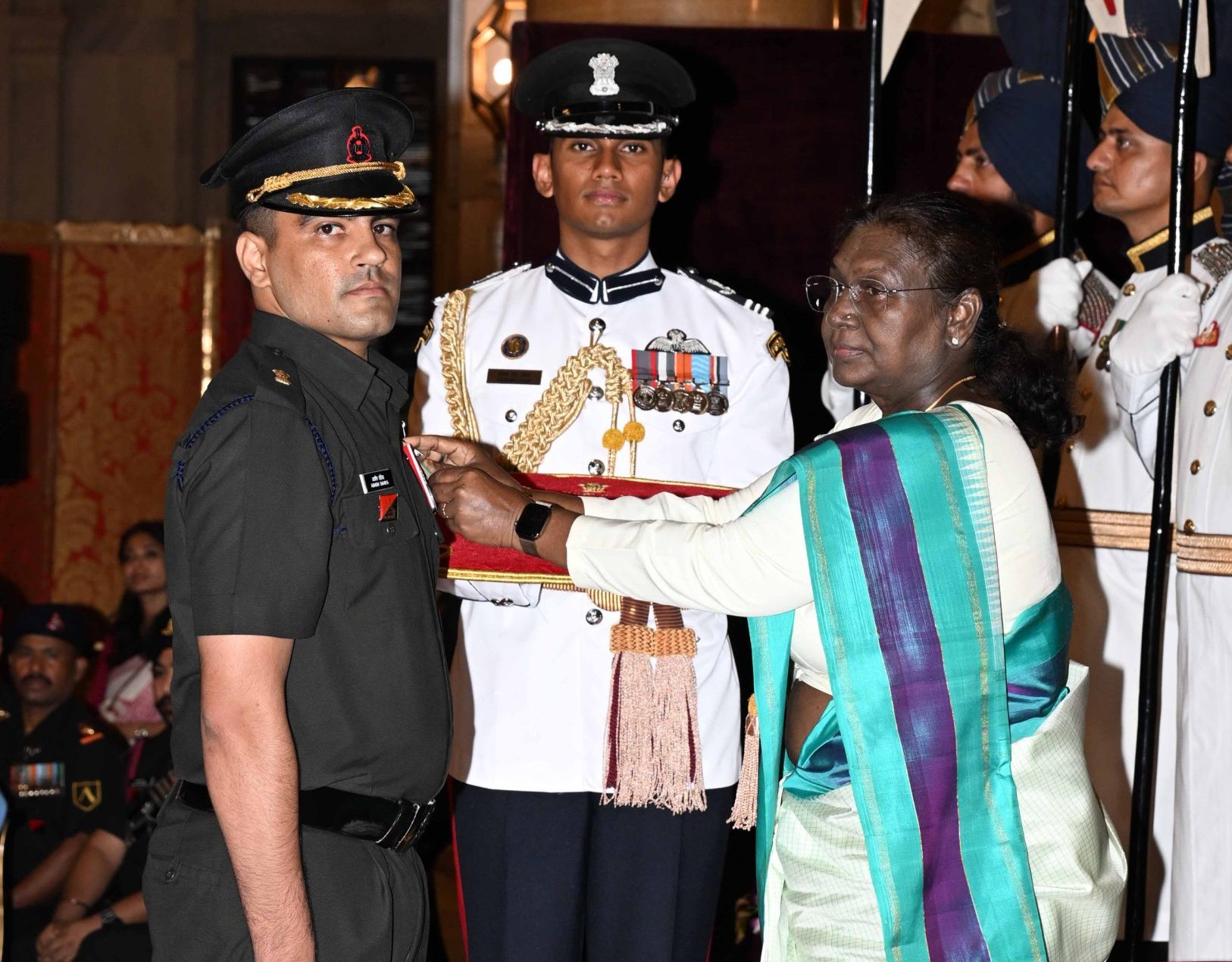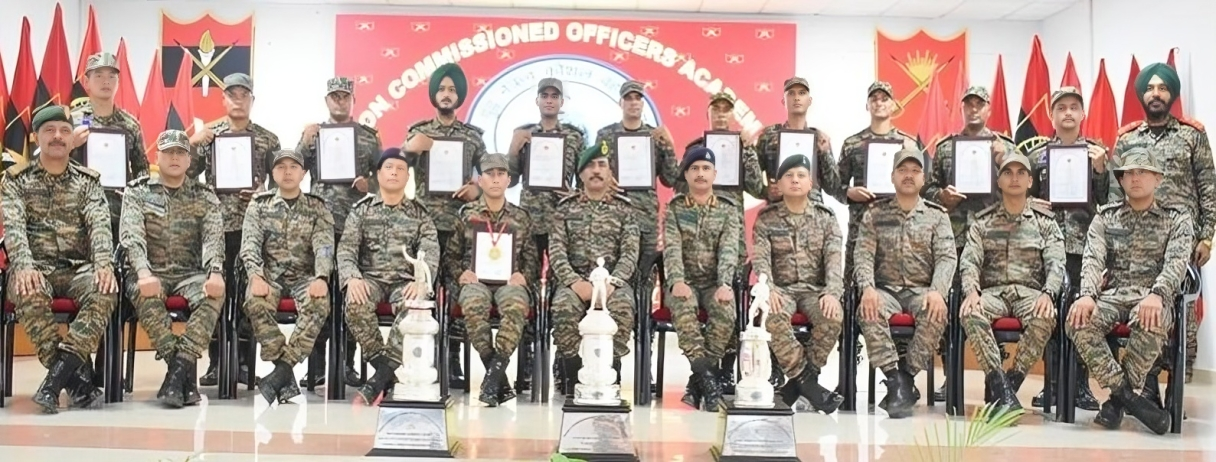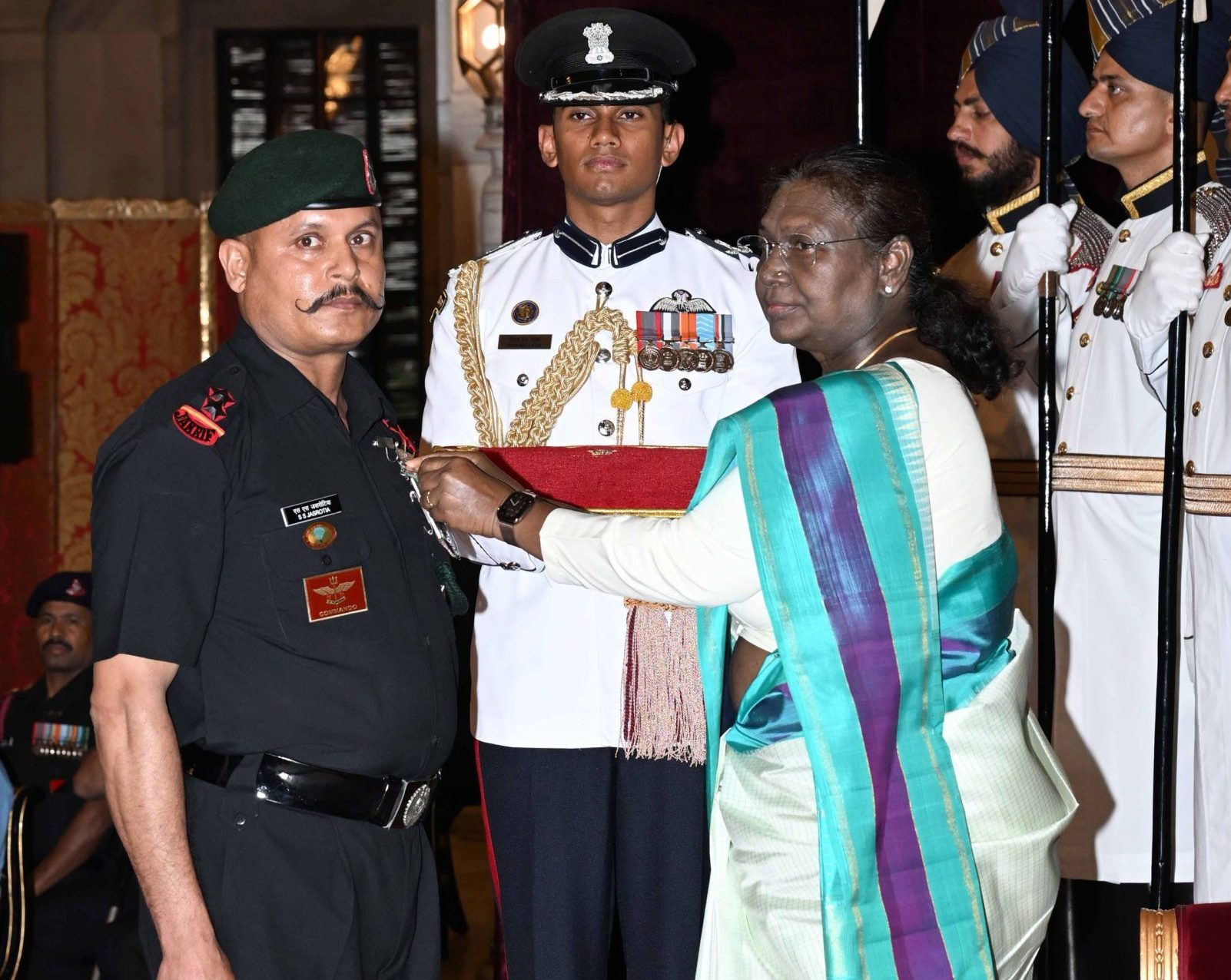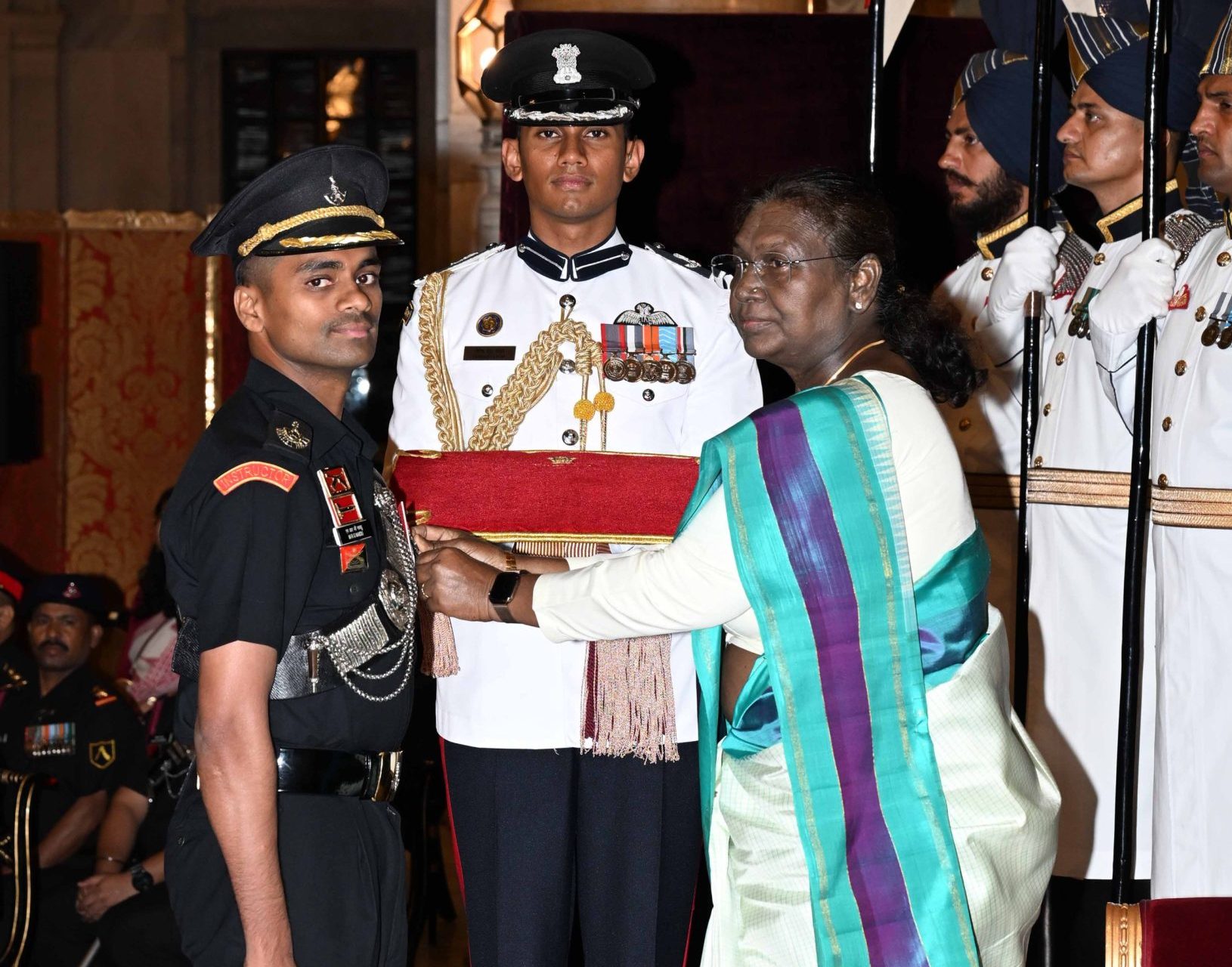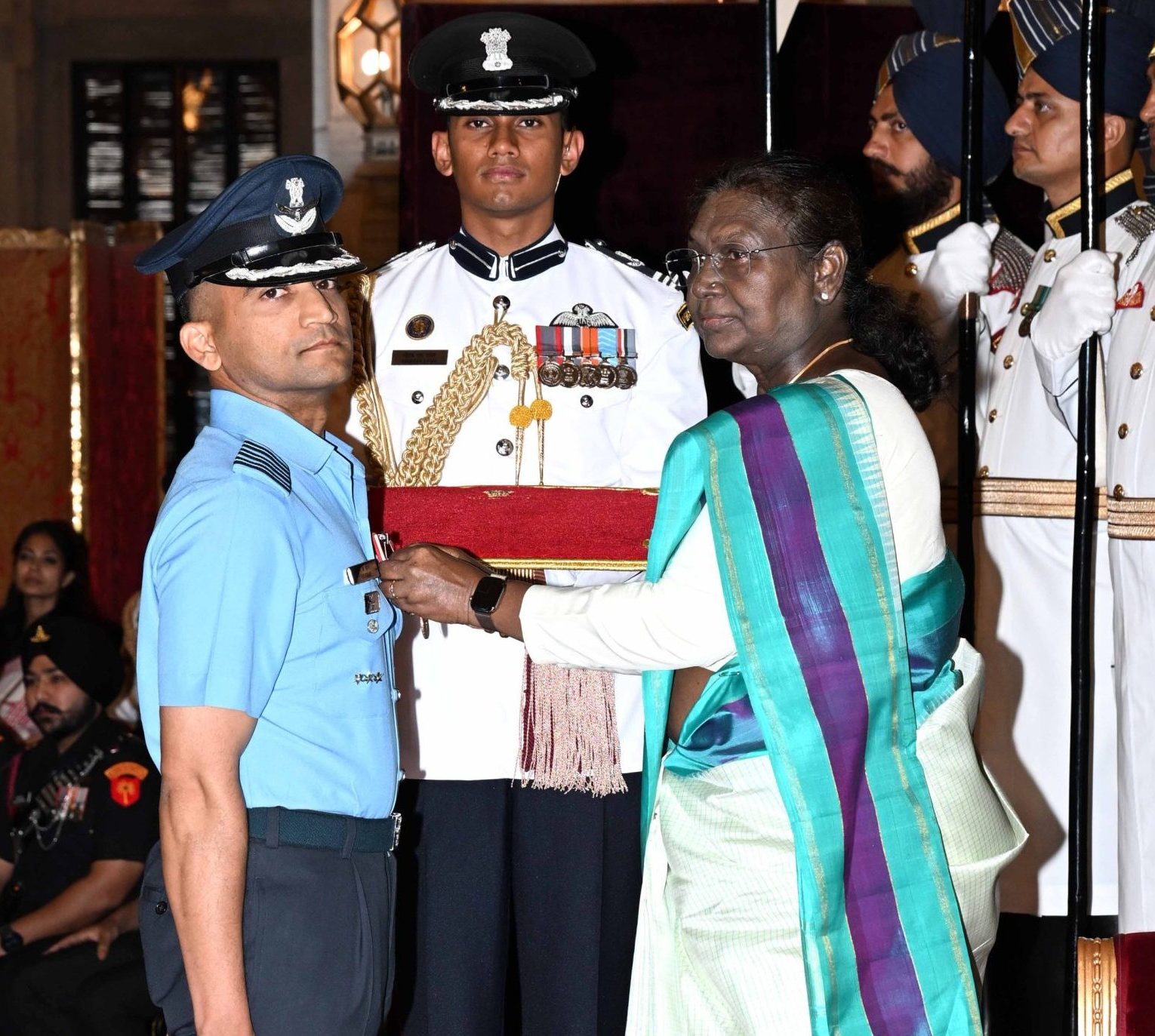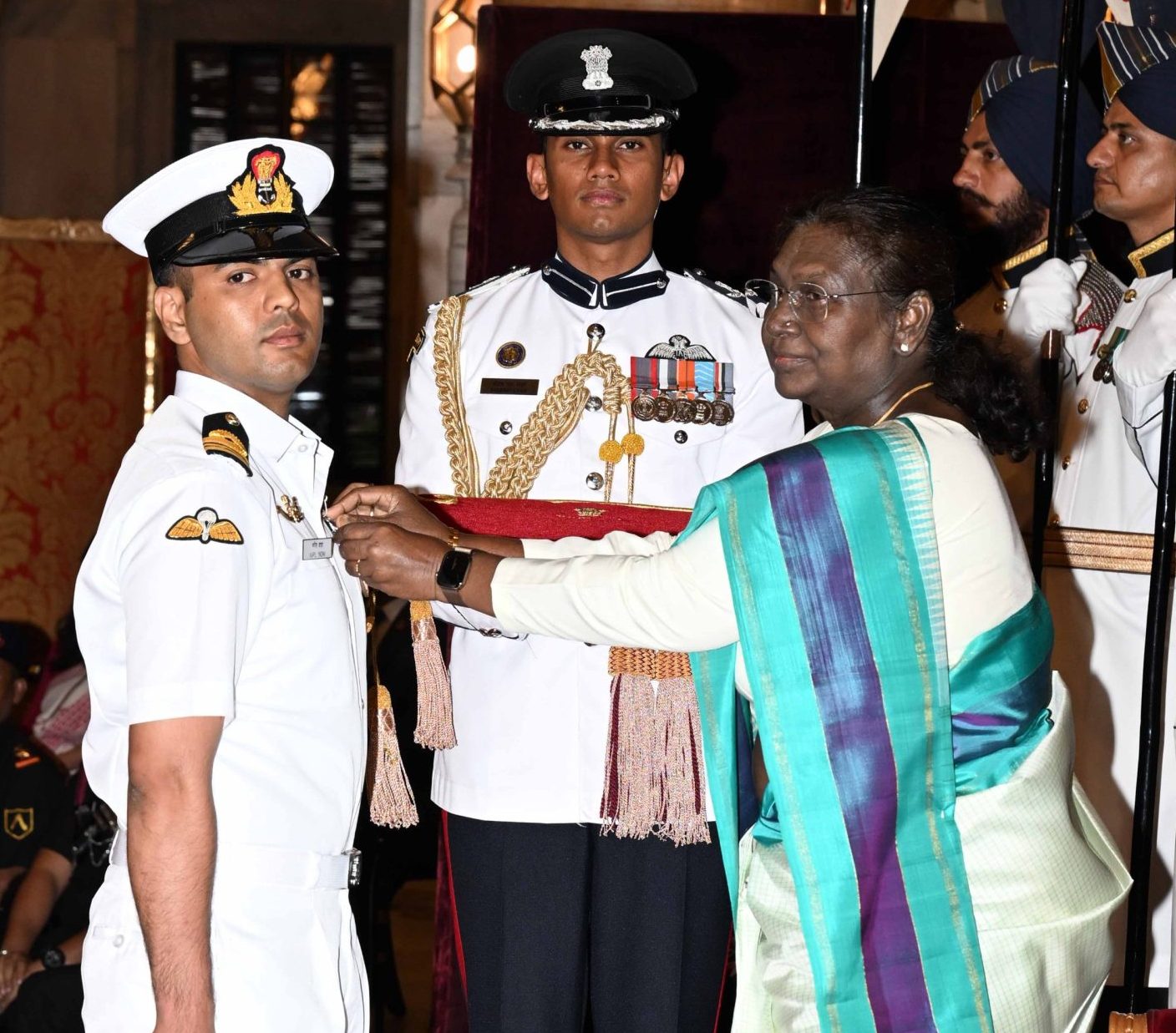50 Rashtriya Rifles Major Ashish Dahiya Awarded Shaurya Chakra for Heroic Counter-Terror Operations in Pulwama
In a solemn ceremony at Rashtrapati Bhavan, President Droupadi Murmu awarded the Shaurya Chakra to Major Ashish Dahiya of the…
Indian Army’s NCO Academy in Dhana Concludes Combat Leadership Course with Hav Chhabilal Khatri Named Best Student
On May 24, 2025, the Non-Commissioned Officers (NCO) Academy at Dhana, operating under the Army Training Command (ARTRAC), successfully concluded…
Subedar Sanjeev Singh Jasrotia Awarded Shaurya Chakra for Bravery in Baramulla Operation
Subedar Sanjeev Singh Jasrotia of the 5th Battalion, Jammu and Kashmir Rifles, was awarded the Shaurya Chakra by President Droupadi…
Major Malla Rama Gopal Naidu Awarded Kirti Chakra for Bravery in Kupwara Counter-Infiltration Operation
Major Malla Rama Gopal Naidu of the Maratha Light Infantry, 56 Rashtriya Rifles, was awarded the Kirti Chakra by President…
Wing Commander Vernon Keane Awarded Shaurya Chakra for Averting Mid-Air Disaster
Wing Commander Vernon Desmond Keane of the Indian Air Force was conferred the Shaurya Chakra by President Droupadi Murmu during…
Lt Cdr Kapil Yadav Honoured with Shaurya Chakra for Heroic Red Sea Rescue
In a solemn ceremony held at Rashtrapati Bhavan, President Droupadi Murmu conferred the prestigious Shaurya Chakra on Lieutenant Commander Kapil…

